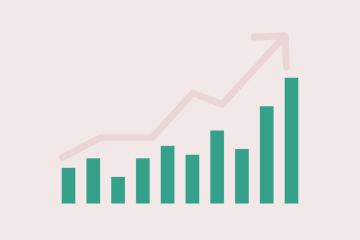
Your guide to credit checks and Schufa credit scores in Germany
Want to better understand how your Schufa credit score impacts your creditworthiness in Germany? Get the lowdown on credit scores, as well as practical tips on how to improve your creditworthiness.
4 min read
Are you trying to rent your dream apartment or thinking about taking out a loan? No matter the reason, if you’re living in Germany, you’ll have to get familiar with your Schufa credit score at some point. But don’t fret—in this guide, we’ll explain how you can request your Schufa report and how to interpret the different credit score values. And if your Schufa credit score isn’t in great shape, don’t worry—we’ll give you a number of tips to boost your creditworthiness. All set? Let’s get started. In simple terms, your creditworthiness is an assessment of your ability to repay a loan. Let’s say you’re applying for a home loan. Your bank will want to make sure you’re able to pay it back in full, plus interest, without defaulting. For this, they’ll need to assess your creditworthiness by checking the data available on you to determine whether you present a financial liability. A low credit score, for instance, constitutes a higher risk of defaulting on a loan.
Schufa Holding AG is Germany’s largest credit protection agency. They rate your creditworthiness according to data they’ve collected on you, such as your payment history. This information is passed on to them by companies belonging to the credit protection network. With this data in hand, Schufa checks your reliability regarding past payments or loans in order to assess your creditworthiness for future contracts. In addition to loan applications, you’ll also likely need to submit your Schufa score when you’re applying for a flat to demonstrate that you have a history of making your payments on time.
Once Schufa has your data, they issue a credit score. This helps banks, landlords, and other parties determine your creditworthiness. However, it’s worth noting that there are several types of Schufa reports. One is the Schufa industry score, which reflects the probability of you meeting financial obligations within a particular branch or industry. The Schufa benchmark score provides information on your creditworthiness and is calculated on the same day as your credit report request. The values lie between 100 and 600 and are determined by calculating the weighted average of all Schufa industry scores. The lower the score, the lower your risk of default. If you have a value of 126, for example, you’re considered very likely to meet your financial obligations. However, the most popular credit score is the basic Schufa score. This is displayed in a copy of your personal data (according to Art. 15 GDPR), which you can request from Schufa. The figure is shown as a percentage and is calculated quarterly whether you request it or not.So, what does the score say about your risk assessment? Have a look:
Has your overdraft request been rejected? This might indicate that your Schufa score has taken a dive. Luckily, you can now take a few steps to boost your credit score in the long-term. As your mobile bank, our goal at N26 is to make life easier for you—especially when it comes to your finances. Open the bank account that suits you best in minutes—no waiting or paperwork required. And now, you can discover N26 Flex, the bank account for those who don’t meet the Schufa requirements for opening a checking account in Germany. Discover how to switch banks with our tool to facilitate the process.
Creditworthiness and Schufa—the basics
What does creditworthiness mean?
So, what’s Schufa got to do with all this?
What’s the Schufa credit score?
- > 97.5% = Your default risk is very low.
- 95-97.5% = Your default risk is low to negligible.
- 90-95% = This value corresponds to a satisfactory to elevated risk.
- 80-90% = The level of default risk is fairly elevated to high.
- 50-80% = Your default risk is very high.
- < 50% = Your default risk is considered critical.
How to boost your Schufa credit score
- First, check all the data Schufa has saved on your behalf. If you see something that looks out of place, you can request that Schufa amend it.
- Do you regularly order from the same company? Create an overview of your outstanding invoices so that you can pay on time and avoid any late fees.
- Have outstanding installment loans or other type of loan? Same rule—make sure to always make your payments on time.
- If you’ve fallen into the red last month and had to use your overdraft, believe us—we’ve all been there, too. However, try to avoid going into overdraw too often—or if you can manage, don’t use it at all.
- Try to keep a document with all your finances and recurring payments, and make sure your expenses don’t exceed your income. If you find it hard to stick to budget, you might want to try easy budgeting methods like the 50/30/20 rule.
Your money at N26
Frequently asked questions
Schufa is Germany’s largest credit protection agency and is almost always consulted for credit checks. They pull data on your past payments or outstanding loans to create an assessment of how likely you are to default on a loan or contract. On top of that, banks can create an internal ranking based on other crucial information such as your occupation and whether you own any property.
With the basic Schufa score, your rule of thumb is “the higher the percentage, the better.” 100% corresponds to perfect creditworthiness, while 90-95% already suggests a minor to manageable default risk.
This depends on your personal Schufa score and how old the entries are. If you paid off a loan early and this information was collected by Schufa, it might prove helpful in improving your score. Outside of that, simply follow our tips in this guide to improve your Schufa credit score in the long-term.
Find similar stories
BY N26Love your bank
Related Post
These might also interest youBANKING BASICSDear Money: an exercise for rewriting your financial scriptsWhether you feel stuck, anxious, or ready to make a change, writing a letter to money can help you reflect on and reset your financial mindset.
5 min read
INVESTBear market: This is what it meansIf you think a bear market sounds rather scary, you’re already on the right track. In this article, you’ll learn what a bear market is, why it occurs, how it affects your assets and how long it lasts.
11 min read
INVESTBull markets: What they mean for your moneyNot sure what bulls have to do with the financial world? The term is mostly symbolic — but bull markets can have significant effects on your investments. Read on to learn what a bull market is.
10 min read


